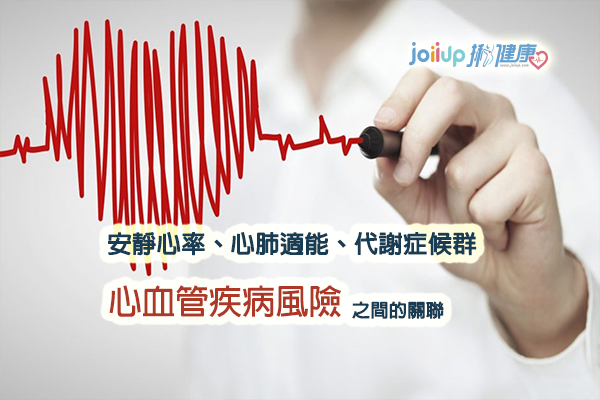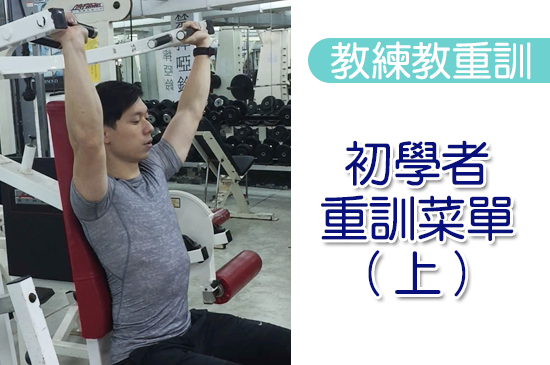www.joiiup.com
影響心跳率的因素(休息與運動)
相信有人是利用心跳率來進行訓練的,而在「Heart Rate Training(中文版本【心跳率,你最好的運動教練-羅伊.班森,狄克蘭.康諾利】)」書中談到,有哪些因素會影響你在休息與運動狀態下的心跳率呢?而且你可以從心跳率去判斷身體的是否過度訓練、恢復不足、體能進步與否等,相信有些資訊大家已經都知道了,但山姆伯伯還是分享出來囉。

在書上的「Factors Affecting Heart Rate at Rest and During Exercise」的小節中,首先談到了休息狀態下的心跳率,所謂的「靜止心率(Resting Heart Rate)」,你可以長期收集這個心跳率來了解是否受傷、訓練過度、恢復未完全等,也可以藉此了解你體能的進步。記錄的方式很簡單,早上起來,花個1分鐘來量測身體的靜止心率。
You’ll find this an invaluable tool, providing feedback on injury, illness, overtraining, stress, incomplete recovery, and so on. It is also a very simple gauge of improvements in fitness.
有幾個因素影響休息與運動下的心跳率。而一般來說,影響「靜止心率」有二個主要的因素「體適能(fitness)」與「恢復狀態(state of recovery)」:
■ 體適能(Fitness)
Fitter people tend to have lower resting heart rates. Some great athletes of the past have recorded remarkably low resting heart rates. The reason for this is that, with appropriate training, the heart muscle increases in both size and strength. The stronger heart move more blood with each beat ( this is called stroke volume) and therefore can do the same amount of work with fewer beats. As you get fitter, your resting heart rate should get lower.
(當你經過適當的訓練之後,心臟肌肉在大小與肌力都增加了,心臟在每一個跳動下可以輸出更多的血液量,因此可在較少的跳動下,卻可以完成相同的總量。因此,愈是強健的人,靜止心率應該愈低。)
■ 恢復狀態(State of Recovery)
After exercise, particularly after a long run or bike ride, several things happen in the body. Fuel sources are depleted, temperature increases, and muscles are damaged.
All of these factors must addressed and corrected. The body has to work harder, and this increased work results in a higher heart rate. Even though you might feel okay at rest, your body is working harder to repair itself, and you’ll notice an elevated heart rate.
Monitoring your resting heart rate and your exercise heart rate will allow you to make appropriate adjustments such as eating more or taking a day off when your rate is elevated.
(在運動之後,尤其是長程的跑步或自行車,身體必須增加心跳率來修復體內損耗,包括能量消耗殆盡、體溫上升及肌肉損壞。即使在休息狀態下,身體沒有不適,而身體仍持續的在進行復原的工作,可以注意到心跳是上升高的。)
There same factors of recovery and injury also affect heart rate during exercise. The factors that elevate resting heart rate also elevate exercise heart rate. If you’re not fully recovered from a previous workout, you might notice, for example, at your usual steady-state pace, an exercise heart rate that is 5 to 10 bpm higher than normal. This usually accompanied by a rapidly increasing heart rate throughout the exercise session.
(若身體沒有得到足夠的恢復,心跳率升高的現象會影響帶進到訓練期間。比方說,在步伐進到穩定狀態時,心跳率會高出過去正常訓練時的5至10 bpm。)
此外,對於運動時的心跳率,「溫度(Temperature)」影響非常之大:
Warmer temperatures cause the heart to beat faster and place considerable strain on the body. Simple put, when it is hot, the body must move more blood the the skin to cool it while also maintaining blood flow to the muscles. The only way to do both of these things is to increase overall blood flow, which means that the heart must beat faster.
(天熱時,皮膚血管擴張,使得流到皮膚的血液要更多,增加體熱的散失,以維體溫;同時,必須維持流往肌肉的血流量。為了進行這二件事,唯一的方式是加快心跳率來增加整體的血流量。)
Depending on how fit you are and how hot it is, this might mean a heart rate that is 20 to 40 bpm higher than normal. Fluid intake is very important under these conditions.
(取決於健康狀況與天氣的溫度,心跳率也許比正常狀況多出20~40個 bpm。在這個情況下,水份的補充是非常重要的。)
Sweating changes blood volume, which eventually can cause cardiac problem. The simplest and most effective intervention to address high temperature and heart rate is regular fluid intake. This helps to preserve the blood volume and prevent the heart from beating faster and faster.
(此外,流汗會改變血量,最後可能造成心臟的問題。最簡單也是最有效的面對方式就是定時的補充水份,保持血量並且防止心跳愈來愈快。)
另外一個影響運動的心跳率是「年紀(Age)」:
In general, MHR will decline by about 1 bat per year starting at round 20 years old. Interestingly, resting heart rate is not affected. This is why the basic prediction equation of 220 – age has an age correction factor. We have coached and tested thousands of athletes, and general trend is that athletes of the same age who produce higher heart rates often have higher fitness scores. However, your HMR is what it is, and you cannot change it.
(大約從20歲開始,最大心跳率每年會減1,而靜止心率不會影響。根據帶過與測試數以千位的運動員,同年紀的運動員,擁有較高心跳率通常也代表有較好的體能狀況。然而,你無法改變最大心跳率。)
最後一個是影響因素是「性別(Gender)」,女性被認為心臟的尺寸與肌肉比男性小,所以有較高的最大心跳率,但這種觀點尚未有定論。
文章來源:山姆伯伯工作坊











